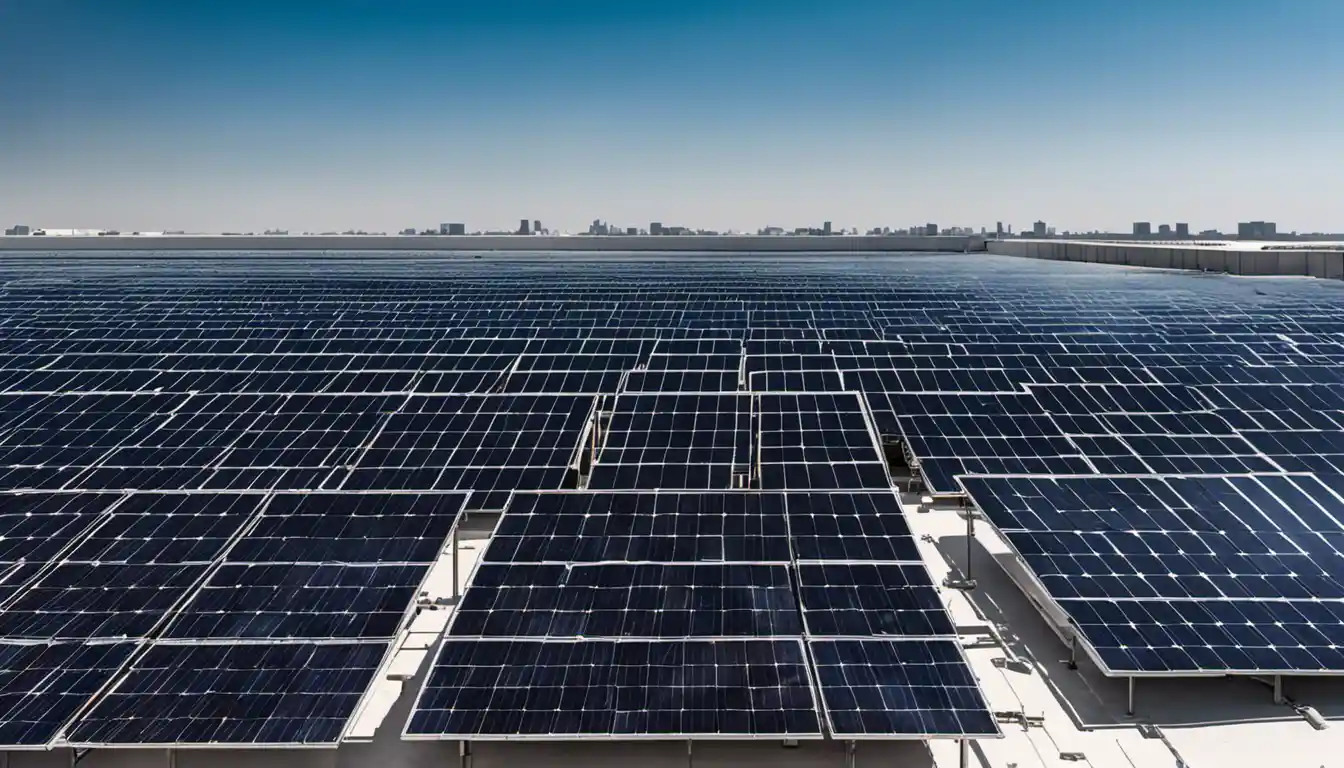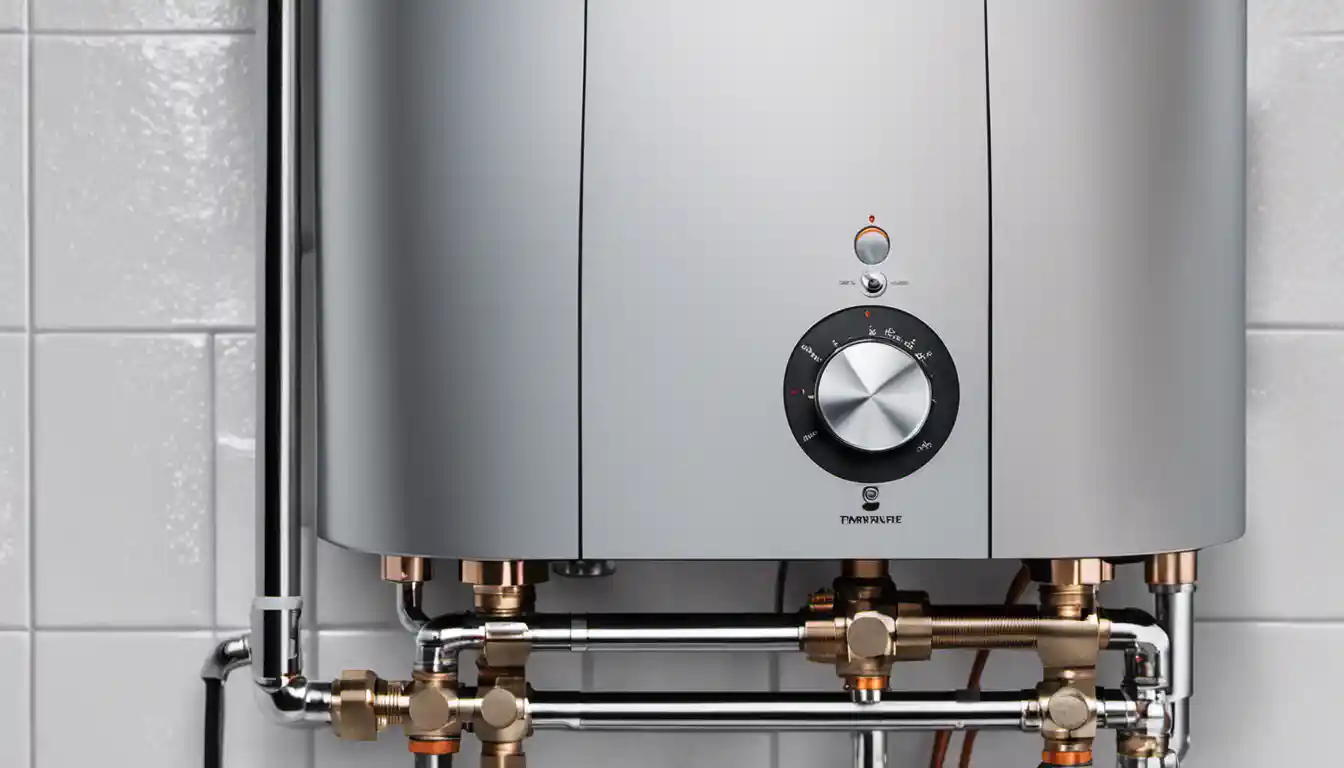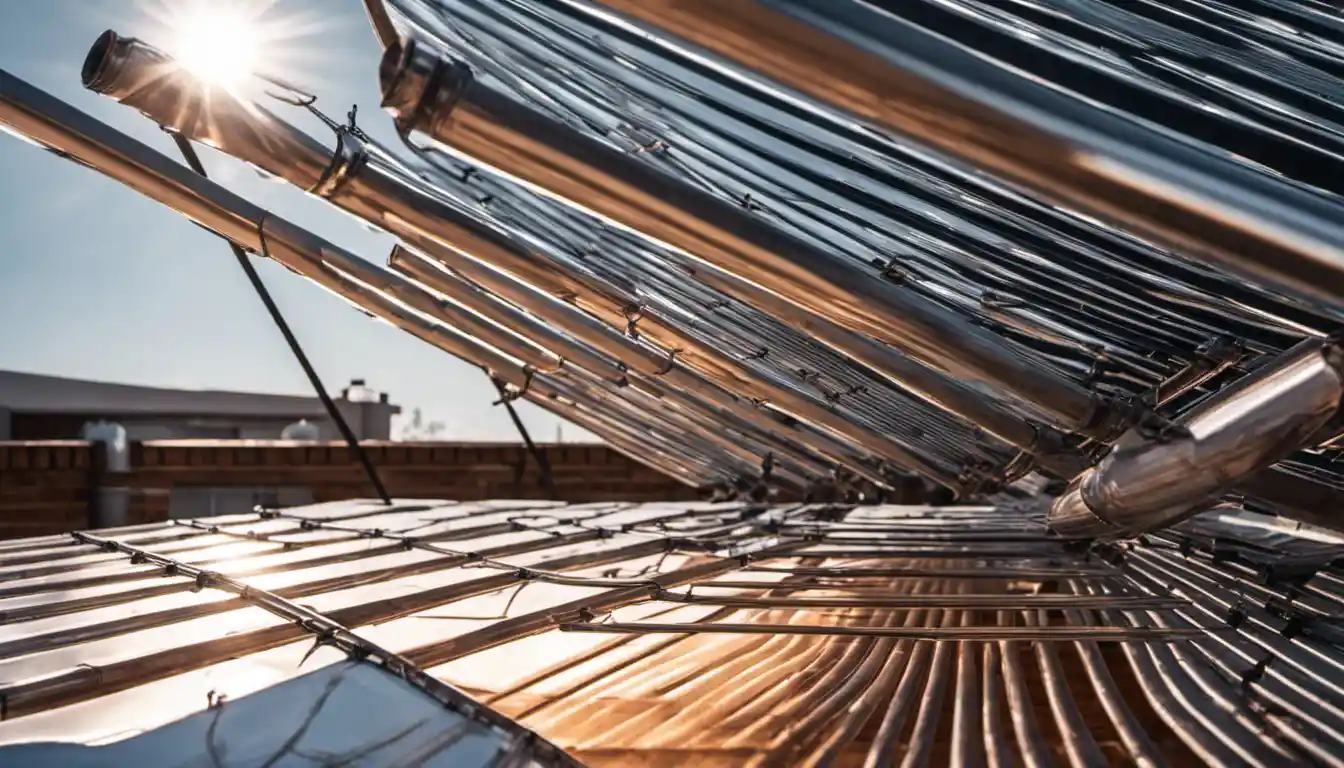Understanding Solar Hot Water Systems
Common problems with solar hot water systems include issues with the solar panels such as damage and dirt which reduces their efficiency. Other problems are related to the water system itself such as leaks, pump failure, or a decrease in hot water supply, often due to a malfunctioning heat exchanger or an issue with the storage tank. These problems can lead to inadequate hot water supply or increased energy bills.
What Are Solar Water Heaters?
A solar water heater utilizes the energy from the sun to heat water for domestic use. Imagine going for a midday swim. You leap into a pool that had been filled with hose water just yesterday. Splash! It’s refreshing but not ice-cold, thanks to Mr. Sun. That’s precisely what solar water heaters do! They absorb the sun’s heat and use it to warm your water—that’s nature running your errands!
Parts of a Solar Hot Water System
Thermal Solar Collectors
These are the solar panels absorbing sunlight and its heat. They function much like the cordial friend who introduces you to some connections. They attract and capture the sun’s energy and transfer it to the water.
The Water Supply Tank
Your water tank is like a faithful servant, patiently storing hot water until you need it. But sometimes, it has an awful day too. Corrosion and leaks can disrupt the operations and result in common problems with solar hot water.
Heat Exchanger / Heat Transfer System
Meet the go-between in our solar powered family. The heat exchanger transfers the heat from the solar collector to your water. It’s like the middleman who makes sure your cold water is introduced to heat without any reservations.
Circulation Pump
Think of the circulation pump as the keeper of the flow, responsible for the regular movement of water through the system. It’s this waterway traffic officer that can trip up sometimes, leading to issues like “solar water heater water not coming out”.
External Boost
It’s the stand-in actor for when the sun can’t perform, commonly deployed during overcast days or during heavy hot water demand. It boosts the heating process to make up for any shortfall.
Common Problems with Solar Hot Water Systems
Solar Panel Capacity Issues

Solar panel issues can result in “hot water not coming from the solar water heater.” This can be because of a lack of exposure to sunlight or damage to the panels. Dust and grime can take a toll as well!
Heat Conducting Rods Failing
The rods are the champions of conductivity, transferring the heat from the panels to the water. When they falter, your water may stay depressingly cold during a relaxing shower.
Clogged Pipes from Sediment Build-Up
Over time, minerals can accumulate inside the pipes, much like pebbles in a river, disrupting the smooth flow of hot water.
Component Corrosion, Scaling, and Deterioration
The harsh aquatic environment within your system can set the stage for some ugly reactions, causing corrosion, scaling, or deterioration of components.
Water Heater Leaks
Leaks can lead to a reduced amount of hot water or even flooding. This is like having holes in your tea cup–it’s just not serving its purpose!
Rust-Coloured Water
If the water from your heater looks like it took a playdate in the mud, it’s likely an indicator of internal rust or corrosion.
Low Water Pressure
When your water trickles out like an idling brook instead of gushing like a waterfall, suspect low water pressure, which could be due to issues such as pipe blockages or pump problems.
Smelly Hot Water
If your hot water has a nasty odor, don’t summon a ghostbuster; it’s likely due to bacterial infestations.
Solar Hot Water Temperature Problems
No Hot Water
“No hot water in the morning” is a frustrating issue that can occur due to issues with the heat transfer process, problems with the heating elements, or simply due to an exhausted supply if you have a small heater.
Hot Water is Not Enough

You might also face problems when the hot water runs out sooner than expected. This could be due to a thermostat setting, partially closed supply valves, or an underperforming heating element.
Water is Too Hot or Cold
Total control of your water temperature might feel like a mythological concept at this point. But hold on–with a few tweaks to your system and checking for any component failures, you can achieve that dream!
Water or Heat Transfer Fluid Leaking
Leaks are about as welcome as an uninvited houseguest. Even small leaks can lead to reduced efficiency and waste a surprising amount of water and heat.
Freezing and Other Pipe Damages
Freezing and consequential pipe cracking ranks high as a major problem in colder climates. Nature’s chill may also lead to damaged pumps and valves, creating a havoc in your solar water heater efficiency.
Not Enough Hot Water or No Hot Water At All
This issue can make you feel like you’re in an arctic survival challenge, especially during the cold months. Not cool!
Infestations
Slimes, bacteria, algae—all the waterborne critters can cast a spell on your hot water, affecting the smell, taste and in extreme cases the color of your water.
Noisy Heaters and System Components
The symphony of your relaxing shower shouldn’t be interrupted by clankings, hissings, and other obnoxious sounds. Noise can be a sign of component failures or infestations within your system.
Open Circuit or Loose Connections
And if the heart doesn’t beat, the body won’t function. An open circuit or loose connections can lead to a complete system failure.
Troubleshooting and Fixing Solar Hot Water Problems
Identify the Problem
Hunt for clues that could guide you to the root cause. Check for drips, hissing sounds, or inspect the color, taste or smell of the hot water.
Turn Off Your System and Address Pressing Issues

The fundamental rule of DIY—switch off your device before starting any repair! It’s safety 101, and applies to your solar water heater as well.
Troubleshoot the Problem or Call a Professional
Now, for some hands-on remedy. Clear clogs, replace heat rods, repair leaks or fix the pump. But if it feels like a behemoth task, call in the experts.
Heating Element Replacement
Replacing a heating element can be a swift solution for several water heating issues.
Check for Electrical Power
Our universe functions on power. Similarly, your heater needs the juice to work the magic!
Checking the Thermostat Power
If your thermostat isn’t getting power, it can’t instruct your heater, resulting in an underperforming system.
Water Leaking from Water Heater
Investigate possible causes before jumping into fixing the leak as it can stem from multiple sources such as valves or tanks.
Dripping Electric Thermal Expansion Tank
If your expansion tank is dripping, examine the pressure and ensure it is functioning correctly.
Water Pressure Regulating Valve Installation
A water pressure regulating valve can be your weapon against low water pressure. Install one and enjoy the high-pressure shower you deserve!
Preventive Measures for Common Solar Hot Water Problems
Regular maintenance and timely checks can prevent hot water pains. Your yearly maintenance schedule should include checking the pipework and tanks for any possible leaks, examining the heat exchanger for scale, removing any sludge or sediment from the storage tank, and ensuring the pump and its variable speed drive are working correctly. For more detailed directions, I have compiled a solar water heater maintenance guide that will help you keep your system in top shape!
Frequently Asked Questions
I have drawn from my experience of two decades to answer these frequently asked questions. If you are wondering, “Why is my solar hot water not getting hot enough?” or “Are solar hot water panels worth it?”, the answers will enlighten you!
Peek in and leverage the knowledge pooled from years of solving hot water woes. Problems with solar hot water might look menacing, but with a little knowledge and effort, they are definitely manageable. Cheers to hot showers and clean dishes!



